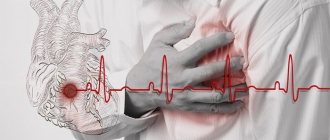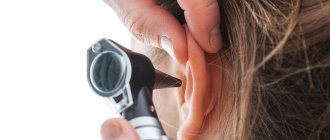Dizziness in the morning
Dizziness after heavy exercise or emotional stress is a normal reaction of the body.
Dizziness in the morning is not a disease in itself. This condition can be caused by pathologies of the cardiovascular system, auditory organs, and neurological diseases.
In any case, before finding out the causes of dizziness, this condition must be alleviated:
- do not rise to your feet abruptly, it is better to lie down for about fifteen minutes
- eliminate oxygen starvation and take deep breaths
- put a cold compress on your forehead
- If you feel chills, you need to cover yourself with a blanket or a warm blanket
- drink a glass of water
A condition where you feel dizzy after sleep can be a harbinger of such serious illnesses as: heart attack; stroke; oncological diseases; atherosclerotic plaques; pathologies of the nervous system, and may be easily removable.
Main provoking factors:
Osteochondrosis of the cervical region
The disease occurs as a result of deformation of the vertebrae and their incorrect location. This leads to the fact that they compress the artery that carries blood to the brain. At night, the sleeper unconsciously takes a position in which the artery suffers even more. Therefore, after sleep in the morning, I feel dizzy and shaky.
Sugar
A sharp decrease in blood sugar occurs due to poor nutrition. Often this condition is experienced by women who are addicted to diets or fasting.
Orthostatic hypotension
The pathological condition occurs when there is a sudden change in body position. This is due to low vascular tone; they do not have time to quickly adapt to changing circumstances. Because of this, blood pressure levels decrease. Therefore, when getting out of bed after sleep in the morning, you feel dizzy.
Malfunctions in the functioning of the vestibular apparatus, in particular the middle ear.
Not hazardous to health. Your head can feel dizzy at any time, including after waking up. It can be easily corrected if you contact a specialist in a timely manner.
Intracranial hypertension
High pressure in the skull puts a very strong strain on the body. In this condition, the headache is severe at any time of the day - at night, in the evening, in the morning after sleep. The pathology is quite dangerous.
Vegetovascular dystonia
The disease is associated with insufficient vascular response to signals supplied by the central or peripheral nervous system. As a result, they have weakened tone. The disease is especially common among teenagers.
Intestinal disorders, poisoning or simply toxicosis during pregnancy
After consuming low-quality or expired food products, toxins accumulate in the body. This happens especially actively at night. After which dizziness occurs in the morning.
Heart diseases
If the heart muscle does not work properly, the activity and tone of blood vessels is significantly reduced. This negatively affects blood flow, it becomes slower and sluggish. As a result, all body cells lack nutritional compounds, as well as the vital element oxygen. This leads to dizziness after sleep, and it is difficult for the patient to get out of bed.
Psychoneurological diseases
Daily psycho-emotional stress does not pass without leaving a trace. Due to nervous shocks, the brain is constantly tense and works hard. This leads to rapid depletion of reserve forces and overwork.
Anemia
Dizziness in the morning with anemia occurs due to low hemoglobin content in the blood and insufficient nutrition of the tissues of the vestibular apparatus. Common symptoms of anemia are mild dizziness, nausea, fainting, unsteadiness of gait.
If severe dizziness in the morning continues regularly, you should consult a doctor and undergo a comprehensive examination.
In conclusion, I would like to say that the correct lifestyle should be made the norm.
Have questions? Write to the doctor.
Symptoms
The symptoms of dizziness depend on the cause that caused it. Most often a person experiences:
- sensation of rotation of surrounding objects;
- a feeling of rotation or incorrect position of the body in space;
- increased sweating (local or general);
- coldness of hands and feet;
- feeling of fear to the point of panic;
- darkening of the eyes, flashing of spots or sparks;
- feeling of lack of oxygen;
- lightness or emptiness in the head, complete absence of thoughts;
- numbness of lips, face;
- weakness, nausea (may be accompanied by vomiting);
- increased heart rate;
- unsteadiness of gait;
- increased blood pressure;
- ringing in the ears, sudden deterioration of hearing.
Symptoms often intensify if a person tries to stand up, turn or tilt his head, look at moving objects, etc.
Diagnostics
Diagnosis of dizziness is a search for the causes that provoked it. First, the doctor interviews the patient to find out in detail about the sensations during attacks and the circumstances under which they occur. Particular attention is paid to chronic diseases, previous injuries and infections, and heredity. Further examination may include:
- examination by a neurologist to determine reflexes, sensitivity, muscle strength;
- consultation with a cardiologist, ENT specialist;
- ECG and ultrasound of the heart to exclude cardiac pathology;
- tests to assess the condition of the vestibular apparatus: rotation test, caloric tests, etc.;
- examination of the condition of the middle and inner ear, audiometry, acoustic impedance measurements;
- MRI of the brain to identify possible tumors and areas of hypoxia;
- duplex scanning of the vessels of the brain and neck to detect narrowings and atherosclerotic plaques;
- angiography of cerebral vessels: assessment of the anatomy and condition of structures using X-rays after the introduction of a contrast agent into them;
- X-ray or MRI of the cervical spine (diagnosis of osteochondrosis);
- electroencephalography (EEG);
- general blood test (allows you to detect anemia), determination of glucose levels, certain hormones, etc.
The list of diagnostic procedures may change depending on the results of previous studies.
Make an appointment
Popular medications on the topic
Cerebrolysin Cerebrolysate
For more information about the causes of dizziness, watch the video:
Diagnosis and treatment of dizziness is a difficult task even for an experienced doctor. In every case of a painful, prolonged or sudden attack, consultation with a specialist is required. Only he will determine what the patient should do next, what consultations and examinations she needs.
This article has been verified by a current qualified physician, Victoria Druzhikina, and can be considered a reliable source of information for site users.
Bibliography
1. https://kiberis.ru/?p=50203 2. https://nikio.ru/docs/02-golovokruzhenie1.pdf 3. https://docs.cntd.ru/document/901918942
Assess how much it was useful article
4.3 130 people voted, average rating 4.3
Did you like the article? Save it to your wall so you don’t lose it!
Treatment and first aid
If dizziness occurs, place the patient on his back so that his head, neck and shoulders lie on a pillow, because in this position, kinking of the vertebral arteries is eliminated. You should avoid turning your head to the side, you need to open the windows, ventilate the room, put a cold bandage on your forehead, you can slightly moisten it with vinegar. Having measured the pressure and temperature, take measures to normalize them; if the heart rate is more than 100 beats per minute or an irregular heartbeat appears, and if dizziness is accompanied by nausea and repeated (more than 3 times) vomiting, you must call an ambulance. The prognosis depends on the nature of the dizziness.
How to get a good night's sleep: expert advice
Sleep doctors know very well where lack of sleep leads. Therefore, in case of regular disruptions in sleep and wakefulness, you should not hope for a lucky break. To prevent negative consequences from causing serious damage to the body, you must immediately contact a specialist and begin treatment.
But here patients may face a serious problem - somnologist is not a common specialty. There are no such departments in universities. As a result, doctors often have to retrain as somnologists, often faced with a lack of night rest. But their acute shortage in Russian cities is clearly visible. Not every locality has specialized medical centers with experienced doctors.
Residents of Rostov-on-Don will not have to look for a long time for a specialist in chronic sleep deprivation. Firstly, the “South Blade” regularly sees a somnologist with extensive experience in:
- diagnosis of sleep disorders;
- correction of this problem.
Secondly, at the medical center the patient will receive comprehensive care. And he will be able to get rid of chronic lack of sleep, including its consequences.
Lack of sleep and its main consequences
Chronic lack of sleep has complex effects on the body. Moreover, somnologists claim that even a one-time lack of sleep will have a negative result. It will take several weeks for the body to compensate for the lack of periodic night rest.
The negative effects of insomnia can be divided into 3 groups:
- are common;
- for men;
- for women.
Doctors include the following in their list of general consequences of lack of sleep:
- decreased production of cytokine protein - it promotes rapid recovery in case of viral infection;
- difficulties with communication - against the background of chronic lack of sleep, a person becomes dull, lethargic and prone to loneliness;
- the risk of developing diabetes - regardless of the cause of insomnia, it stimulates increased glucose production, which in 90% of cases leads to diabetes;
- problems at work - an employee who is constantly sleep-deprived will not be able to move up the career ladder and will be in bad standing with his superiors;
- deterioration of relationships in a couple - lack of night rest causes a decrease in libido, which means intimate intimacy will become an unprecedented rarity.
Depression is one of the most common consequences of lack of sleep. And if initially it manifests itself as mild dissatisfaction with life, then as the lack of sleep becomes chronic, the depression becomes more severe. In other words, in the absence of proper treatment, it can lead to suicide.
Lack of sleep and its main consequences for women
In the fair half of humanity, the lack of night rest manifests itself almost immediately. For example, even 1-2 nights without proper rest have negative results for appearance. And if the problem is chronic, the manifestations will be harsher and brighter.
First of all, lack of sleep causes deterioration in appearance:
- swelling;
- bags under the eyes;
- the appearance of cyanosis of the skin;
- dullness of skin and hair;
- brittle nails;
- the appearance of wrinkles;
- hair loss.
At the same time, the list of consequences includes:
- hormonal disbalance;
- excess weight;
- premature aging;
- disruptions of the menstrual cycle.
In general, chronic lack of sleep reduces a woman's attractiveness. She stops looking after herself, smiling and has little interest in others. Therefore, being next to such a lady is not very pleasant. As a result, the relationship may not withstand such a test.
Lack of sleep and its key consequences for men
The consequences of lack of sleep in the stronger half of humanity appear after some time. Men who play sports react especially acutely to insomnia - they:
- feel lethargic;
- forced to reduce physical activity;
- can't build muscle mass.
Due to chronic lack of sleep, athletes lose weight and are unable to train productively.
But at the same time, lack of rest at night clearly manifests itself as:
- general depression;
- hormonal disruptions;
- periodic outbursts of aggression;
- decreased mental abilities.
Separately, it is necessary to note the ability of men to procreate. If the problem is chronic, sperm activity is significantly reduced. As a result, conceiving a child will be more difficult, and in some cases even impossible. At the same time, you need to understand that the ability of men in the reproductive segment to be restored is long and difficult.
Prevention
With many chronic diseases, dizziness becomes common. The frequency, severity and duration of attacks can be reduced not only by taking medications, but also by following preventive measures. Necessary:
- stop smoking and drinking alcohol;
- minimize caffeine and table salt;
- sleep on an orthopedic pillow and mattress;
- regularly engage in amateur, recreational sports, visit the pool;
- eat well, consume enough vitamins and microelements;
- normalize the work and rest schedule, ensure continuous night sleep for at least 8 hours;
- avoid excessive physical activity and heavy lifting;
- undergo examinations in a timely manner and follow doctor’s orders.
Treatment at the Energy of Health clinic
Doctors at the Energy of Health clinic will always come to the rescue with attacks of dizziness. We offer:
- a full range of diagnostic measures to identify the cause of vertigo;
- treatment of diseases of the ENT organs;
- modern drug regimens to improve the functioning of the central and autonomic nervous systems;
- physiotherapeutic procedures if indicated;
- massage and exercise therapy;
- services of an osteopath and chiropractor;
- acupuncture;
- supervision of specialists throughout the course of treatment;
- advice on normalizing your daily routine, nutrition, etc.
We always use an integrated approach in the treatment of pathological conditions. This allows us to achieve high efficiency of therapeutic measures.










